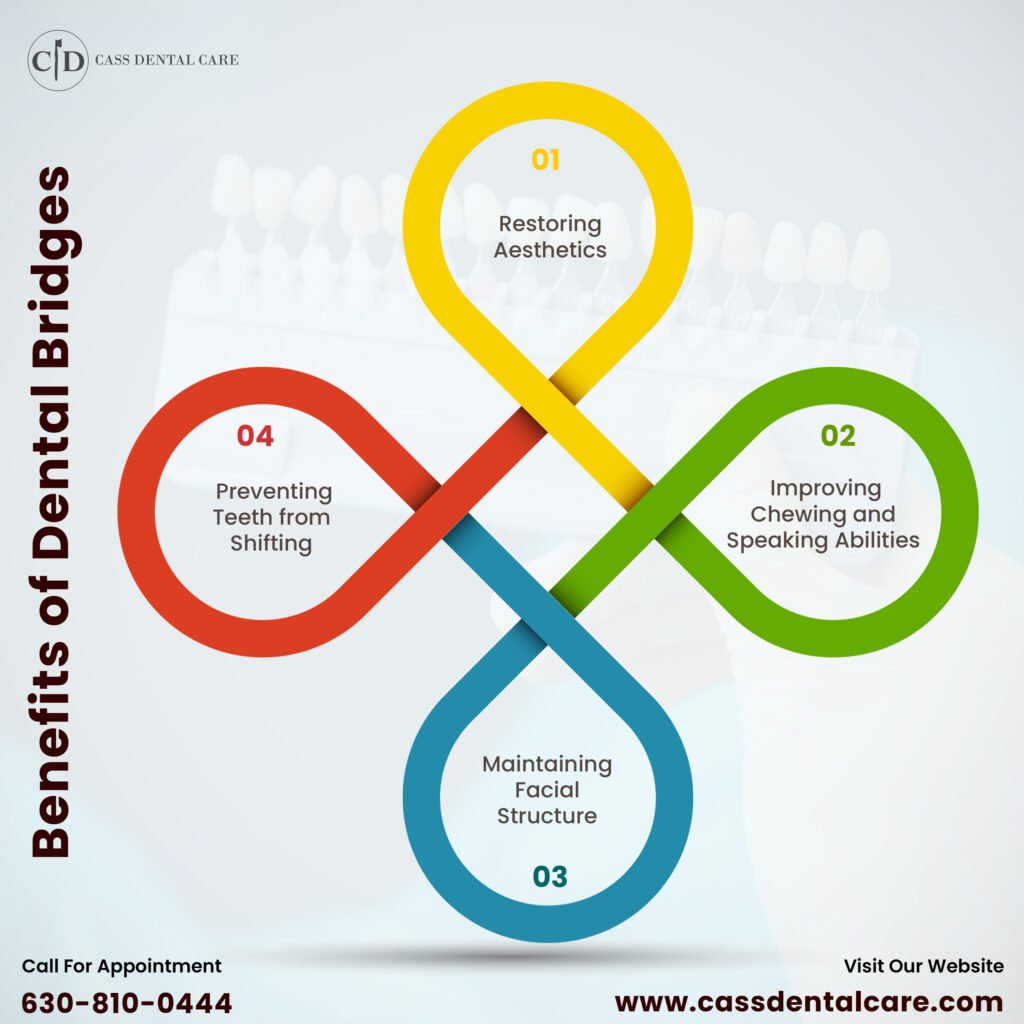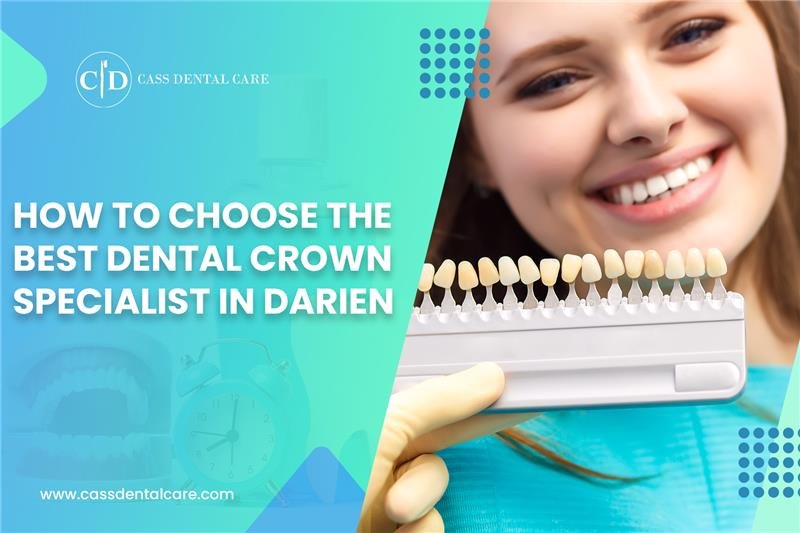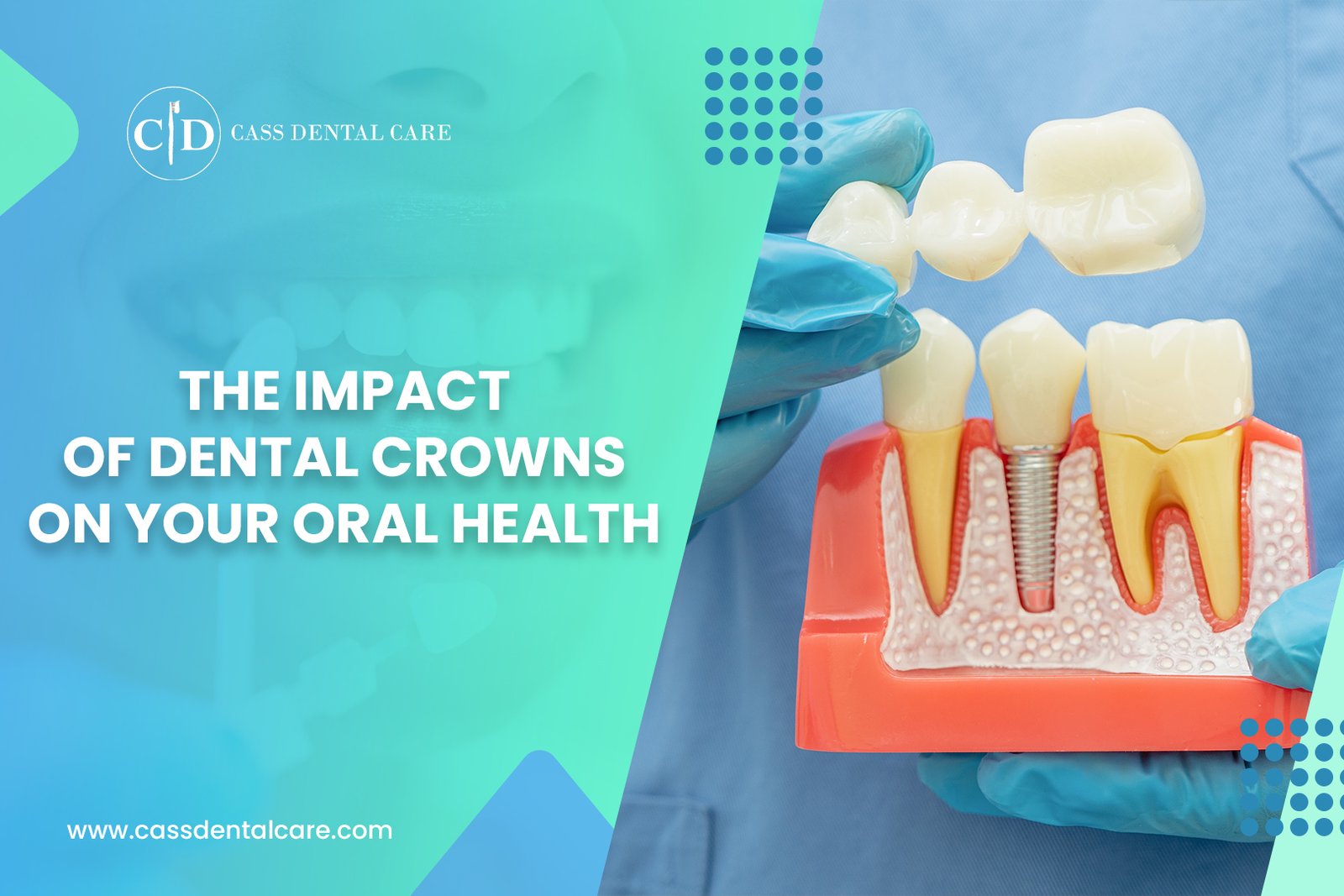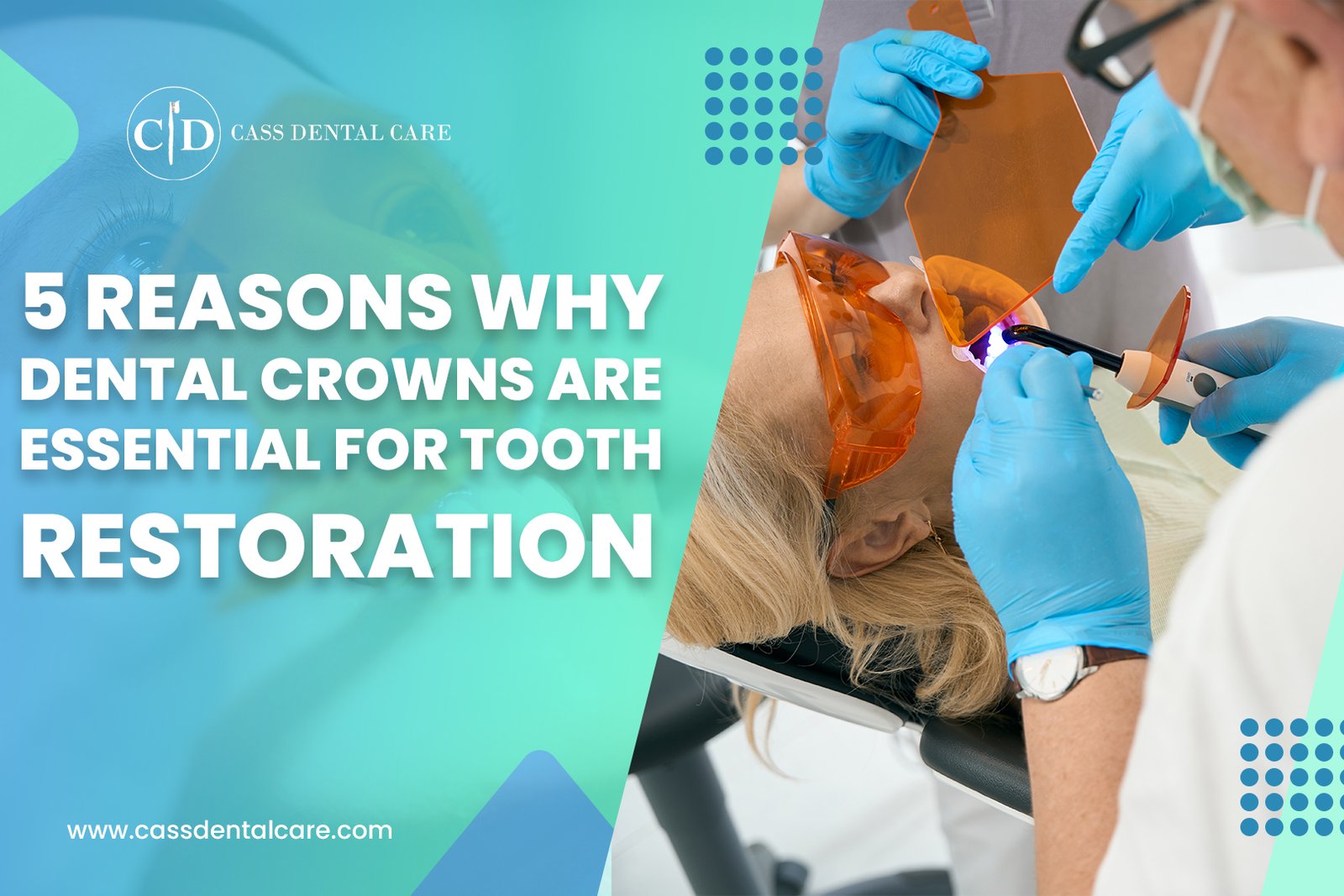A good smile adds some plus points to our personality. It also attracts others and makes them smile even brighter. However, smiling broadly might seem problematic if someone has a broken or missing tooth. Fortunately, advancements in medical science have made everything possible. You can restore your smile with dental bridges or dental crowns.
At Cass Dental Care, we understand the importance of a bright smile; therefore, we are known as the best dentist for dental crowns in Darien. We offer a wide range of dental care services to all age groups, and one of the best dental care services is dental bridge services.
In this blog, we will discuss dental bridges, their benefits, types, procedures, and why and when to get them. So let’s get started.
What is a Dental Bridge?
A dental bridge replaces broken or missing teeth by filling artificial-looking teeth. If you have a gap in your teeth, a dental bridge fills that gap by using the teeth on either side of the space as support.
Here’s how it works:
- The dentist prepares the teeth on either side of the gap by shaping them a bit.
- Then, they take impressions of your teeth to make a custom bridge that fits perfectly.
- The bridge, which looks like a row of teeth, is then placed onto the prepared teeth and fixed in place.
Once the bridge is in, it looks like natural teeth and helps you chew better and smile confidently!
Types of Dental Bridges

Depending upon the urgency of your dental health, your dentist will recommend which type of dental bridge will suit you. If you only have minor issues, the dentist can even guide you for dental crowns.
Let’s see what are different types of dental bridges:
- Traditional Dental Bridges
These are the most common types of bridges. They consist of one or more artificial teeth (called pontics) held in place by dental crowns cemented onto the natural teeth on either side of the gap.
- Cantilever Bridges
Like traditional bridges, they are supported on only one side instead of both. This means the pontic is anchored to a natural tooth on only one side of the gap. Cantilever bridges are utilized when only a single natural tooth is adjacent to the gap.
- Maryland Bridges
Also known as resin-bonded bridges, Maryland bridges consist of a pontic held in place by a metal or porcelain framework. Compared to traditional bridges, Maryland bridges don’t require adjacent teeth to be extensively prepared with dental crowns. Instead, they are bonded to the back of the adjacent teeth using a unique adhesive.
- Implant-Supported Bridges
Implant-supported bridges depend on dental implants, not natural teeth, to provide support. Dental implants are titanium posts surgically inserted into the jawbone to serve as artificial tooth roots. The bridge is then attached to the implants, providing a stable, long-lasting solution for replacing missing teeth.
Benefits of Dental Bridges

Like dental crowns, dental bridges also offer several benefits for individuals with missing teeth:
- Restoring Aesthetics: One of the primary benefits of dental bridges is their ability to restore the appearance of your smile. The gap left by missing teeth can affect your confidence and self-esteem. Bridges fill these gaps with natural-looking artificial teeth, seamlessly blending with your existing teeth to create a more aesthetically pleasing smile.
- Improving Chewing and Speaking Abilities: Missing teeth can make it difficult to chew food properly and articulate certain sounds while speaking. Dental bridges restore the function of your teeth, allowing you to bite and chew more effectively. They also help improve your speech by supporting your lips and tongue.
- Maintaining Facial Structure: When you lose a tooth, the surrounding teeth may shift out of alignment over time. This can lead to changes in your bite and facial structure, causing your face to appear sunken or aged. Dental bridges help prevent this shifting by filling the gap and stabilizing the surrounding teeth. By maintaining proper tooth alignment, bridges also help preserve the natural contours of your face.
- Preventing Teeth from Shifting: As mentioned earlier, dental bridges help prevent adjacent teeth from drifting out of position into the space left by the missing tooth. This helps maintain the alignment of your teeth and reduces the risk of other dental issues, such as bite problems and temporomandibular joint (TMJ) disorders.
Contact Cass Dental Care for more details on Dental Bridges.
If you live in Darien and are looking for the best dentist for dental crowns and bridges, then Cass Dental Care is here to cure your dental problems.
Our team of dental professionals works closely with each patient and prepares a customized oral solution according to the urgency of oral health. We invite you to contact us today!





